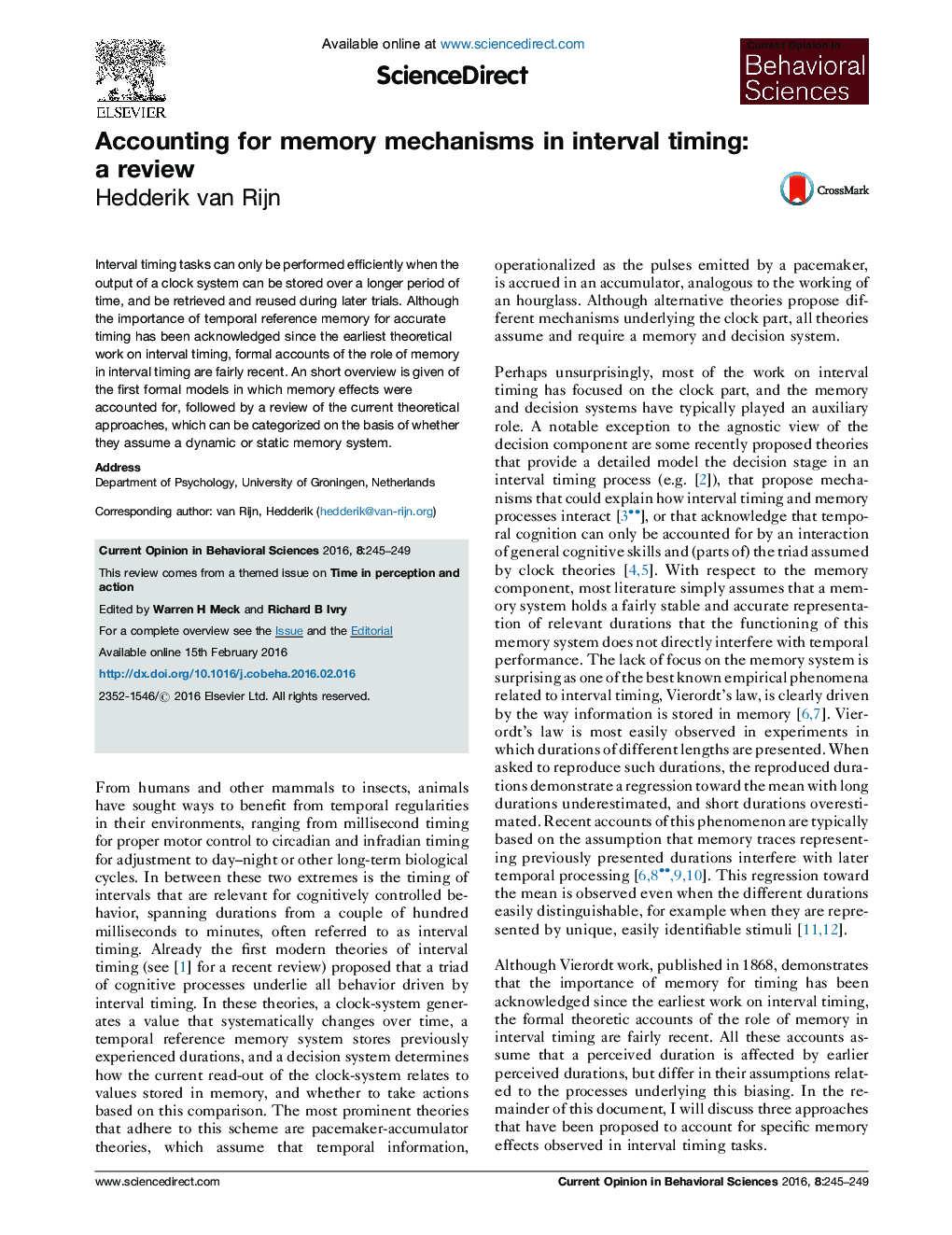| Article ID | Journal | Published Year | Pages | File Type |
|---|---|---|---|---|
| 6260556 | Current Opinion in Behavioral Sciences | 2016 | 5 Pages |
â¢A temporal reference memory is an essential element of any interval timing theory.â¢Current Bayesian accounts all assume a static memory distribution.â¢More recent theories explain how memory distributions are acquired.â¢Only realistic memory models can explain interval timing in real-world contexts.
Interval timing tasks can only be performed efficiently when the output of a clock system can be stored over a longer period of time, and be retrieved and reused during later trials. Although the importance of temporal reference memory for accurate timing has been acknowledged since the earliest theoretical work on interval timing, formal accounts of the role of memory in interval timing are fairly recent. An short overview is given of the first formal models in which memory effects were accounted for, followed by a review of the current theoretical approaches, which can be categorized on the basis of whether they assume a dynamic or static memory system.
